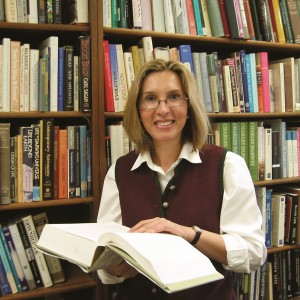Professor Vassiliki Betty Smocovitis received her Honours BSc degree from the University of Western Ontario in Biology with an area of concentration in the plant sciences. She completed her PhD in the graduate field of ecology and evolutionary biology and in the new Program for the History and Philosophy of Science and Technology at Cornell University. She joined the history department at UF in 1988 and has been teaching a range of courses in the history of science since then. In 2004 she also joined the Zoology department at UF (now merged with Botany to form Biology) where she developed new courses in biology and society and in the philosophy of biology. Her most popular courses at UF include the History of Evolutionary Thought; Science, Exploration and Empire; and the History and Evolution of Infectious Disease. She has also developed a series of graduate seminars in the history of biology and in the cultural history/cultural study of scientific knowledge that include courses like the Climate of History. She has been a recipient of a range of teaching awards at all levels at UF that include the outstanding university teaching award in 1997. In recognition of her record of teaching and scholarship, she was named the UF Distinguished Alumni Professor for 2009-2011, one of the highest honors given to UF faculty, and in 2014 was named Elizabeth Wood Dunlevie Professor in the Honors Program. In 2012 she was awarded the Joseph H. Hazen Education Prize by the History of Science Society.
Professor Smocovitis’s research efforts are focused on gaining a greater understanding of the historical event known as the “evolutionary synthesis” from the perspective of the new intellectual/cultural history of science. Her areas of expertise include the history of modern evolutionary biology, genetics, systematics, paleontology and ecology, and the history of American botany. More recently, she has been studying the history of biological anthropology. In 1996 she published Unifying Biology: the Evolutionary Synthesis and Evolutionary Biology with Princeton University Press. It was designated as one of Choice’s Outstanding Academic Books of 1997. She has published extensively in the history of evolution, the history of genetics, the history of anthropology, and in the history of botany with articles and reviews appearing in Isis, Osiris, Historical Studies in the Natural Sciences, Journal of the History of Biology, History and Philosophy of the Life Science, American Journal of Botany, Social Epistemology, and Taxon along with Science, Nature and the Quarterly Review of Biology. She is currently working at gaining greater understanding of the relationship between botany and the “evolutionary synthesis” through a biographical study of the chief “architect,” George Ledyard Stebbins. With plant systematist Daniel Crawford, she co-edited a collection of Stebbins’s most important scientific papers as well as co-editing an autobiography left uncompleted at the time of his death in 2000. She has been the recipient of grants and fellowships from the National Science Foundation, the National Endowment for the Humanities and the American Philosophical Society. In 1990-92, she was Mellon Fellow in the Humanities at Stanford University and in 2001 she was elected Fellow, American Association for the Advancement of Science. She has served on a number of editorial boards including Isis, Osiris, Journal of the History of Biology, Social Epistemology, the Mendel Newsletter, History of Science and Museum History Journal. As Associate Editor for both the New Dictionary for the History of Ideas, and the Encyclopedia of Evolutionary Biology, she was responsible for entries in the history of science, and she served as Editor-in-Chief of “Studies in Botanical History,” a monograph series with the New York Botanical Garden Press. She has also been active in a range of professional societies where she has been an elected officer including The History of Science Society, The Society for the Study of Evolution, The Botanical Society of America, and the American Association for the Advancement of Science, where she has served for two terms as Chair, of Section L, History and Philosophy of Science.
